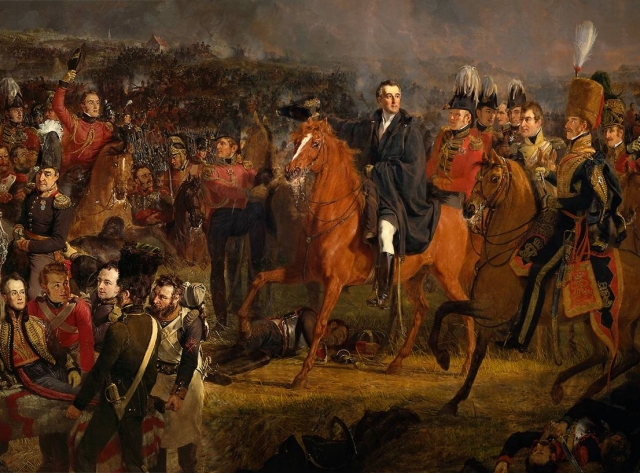Scheme of Work: Waterloo and the Age of Revolutions
Primary Scheme of Work, Key Stage 2 History (resourced)

Age of Revolutions Education Programme
This scheme of work explores the 'Age of Revolutions' period across the late eighteenth and early nineteenth centuries. It was written for the Historical Association by Karin Doull to supplement the Age of Revolutions Teacher Fellowship Programme, which is funded by Waterloo 200.
The Napoleonic wars shaped their age: children were threatened with 'Boney' long after he had gone. Images of the time in words and pictures show the importance of the military both in polite and less salubrious company. Some of England’s most enduring heroes, Nelson at Trafalgar and Wellington at Waterloo, were created at this time. The battles of this period pepper our culture often without us being aware of it, through place-names or recipes such as chicken Marengo. It was in the Peninsular War that the term 'guerrilla' was coined to describe how the Spanish fought against Napoleon's armies. Had Hitler paid more attention to this period of history the battle for the Eastern Front would never have been considered.
The upheavals generated by the prolonged military conflict led also to a series of popular movements that reflected great social changes. Across continents ordinary people began to demand a say in how they were governed. Many of the soldiers who fought were volunteers linked to local geographical areas. The developing political consciousness also had local roots and manifestations. It is always useful, where possible, to provide a local lens through which to view a period of British history. The focus is on developing historical understanding and thinking. Children are encouraged to develop chronological understanding by linking the events to the historical context. Underpinning much of the unit is the concept that there are reasons why people acted as they did; children should recognise the importance of causality. There is a strong emphasis on children investigating issues and solving valid historical questions, recognising the nature of the evidence on which their judgements and knowledge are based.
This unit is structured around two history enquiry themes:
- What was Britain’s situation in this 'Age of Revolutions'?
- What do these varied sources tell us about the significance of these events both then and now?
This unit can be used alongside that for the Georgians.
|
Please note: The majority of the HA schemes of work were produced between 2014-2019 by members of the HA primary committee and its affiliates. This unit is a resourced scheme of work; however, the resources it refers to may in some cases only be available to full members of the HA. These schemes of work are designed to support your planning and should be moulded and adapted to fit the context and needs of your own school. To view free sample schemes of work, please refer to our curriculum plan on Ancient Greece and our other open-access units on EYFS and Age of Revolutions. We regularly check the hyperlinks included in the schemes but unfortunately every now and again some links may go out of date. If you spot a broken link, please let us know on enquiries@history.org.uk. (Please note that due to the cyber attack on the British Library in October 2023, most links to British Library resources are not currently working.) |
This resource is FREE to all registered users of the website
If you are not already registered you can sign up for FREE Basic Website Access or Join the HA to access this content.

